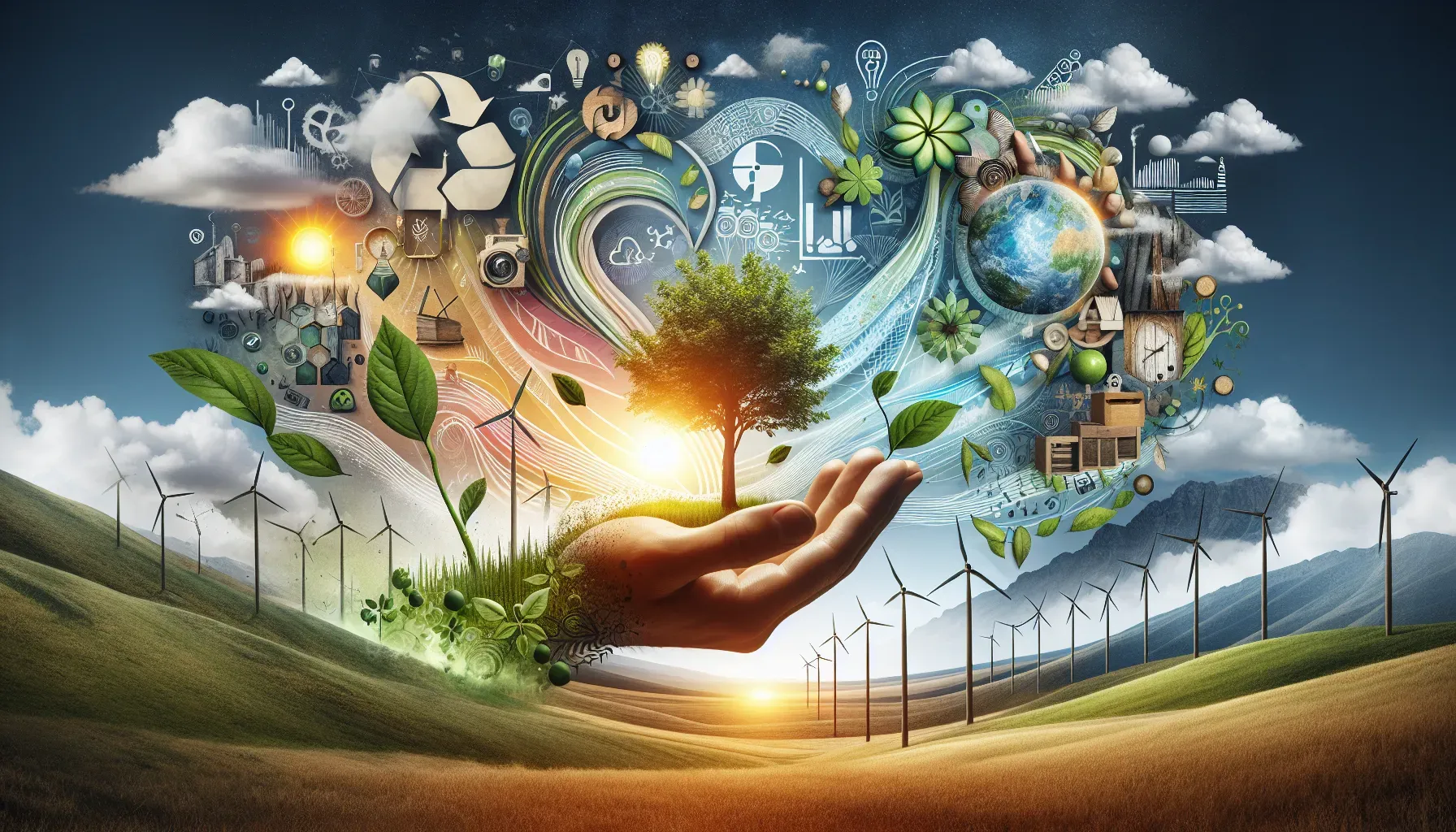Raising Eco-Conscious Kids: Nurturing Environmentally Friendly Habits

EvaRealm Blog is dedicated to creating a better world for our children by instilling eco-consciousness from an early age. As parents, it's our responsibility to teach our kids about the importance of sustainable living and environmental stewardship. In this comprehensive guide, we will explore various ways to nurture environmentally friendly habits in children, empowering them to protect the planet for future generations.
Raising Eco-Conscious Kids: An Overview
One of the most effective ways to instill environmental awareness in children is by leading through personal example. Showcasing eco-friendly habits such as recycling, conserving energy, and reducing waste demonstrates to children the practical application of sustainable living.
Instilling Environmental Awareness in Children
Connecting children with nature through regular outdoor activities can foster a deep appreciation for the environment. Exploring local parks, hiking trails, or engaging in gardening provides valuable opportunities to teach children about ecosystems, wildlife conservation, and the interconnectedness of all living things.
How to Lead by Example in Eco-Friendly Habits
Storytelling is a powerful tool for conveying important messages. Utilize engaging books, documentaries, and age-appropriate films that highlight environmental themes. These resources can spark meaningful conversations and cultivate a sense of responsibility towards the planet.
The Benefits of Nature Walks and Outdoor Activities
Teach children about waste separation and recycling practices at home. Engage them in sorting recyclables from non-recyclable materials, emphasizing the impact of recycling on conserving natural resources and reducing landfill waste.
Related Article: Eco-Friendly Family Living: Sustainable Practices for an Environmentally Responsible Parenthood
Using Stories and Media to Educate on Sustainability
Encourage creativity and resourcefulness by involving kids in upcycling projects. Transforming everyday items into new creations not only reduces waste but also nurtures innovation and critical thinking skills in children.
Educate children about the harmful effects of single-use plastics on the environment. Encourage the use of reusable water bottles, lunch containers, and shopping bags as alternative eco-friendly options.
Teaching Waste Sorting and Recycling at Home
Initiate age-appropriate discussions about ethical consumerism, highlighting the impact of purchasing decisions on the environment and communities worldwide. Encourage critical thinking when selecting products and support businesses with sustainable practices.
Teach children how to identify eco-friendly labels such as organic, fair-trade, and energy-efficient certifications. This knowledge empowers them to make informed choices while promoting environmentally responsible products.
Creative Upcycling Projects for Kids
During special occasions, promote thoughtful gifting practices that align with sustainable values. Encourage experiences over material possessions, DIY gifts, or eco-friendly products that support ethical production.
The Impact of Minimizing Single-Use Plastics
Engage children in community-based environmental initiatives such as neighborhood clean-ups, tree planting events, or volunteering at local conservation organizations. Active participation fosters a sense of belonging and encourages long-term commitment to environmental causes.
Conscious Consumerism: Making Eco-Friendly Choices
Introduce children to inspirational figures who have made significant contributions to environmental conservation. Learning about environmental activists, scientists, and conservationists can inspire children to become advocates for positive change within their communities.
Discussing Ethical Consumption with Children
Teach children respect for all living beings by emphasizing kindness towards animals, plants, and ecosystems. Fostering empathy contributes to developing a deep sense of responsibility in protecting the diversity of life on Earth.
By incorporating these strategies into daily life, parents play a vital role in shaping environmentally conscious attitudes and behaviors in their children. Together, we can raise a generation of eco-conscious individuals committed to preserving our planet for generations to come.
Frequently Asked Questions
Parents can instill environmental awareness by leading through example, showcasing eco-friendly habits like recycling and conserving energy. Engaging children in nature walks and outdoor activities also fosters a deep appreciation for the environment, while storytelling through books and media can spark meaningful conversations about sustainability.
To teach kids about recycling, engage them in waste sorting at home by separating recyclables from non-recyclable materials. Explain the importance of recycling in conserving natural resources and reducing landfill waste. Additionally, involving them in upcycling projects can enhance their creativity while reinforcing the value of reusing materials.
Community involvement is crucial for eco-conscious kids as it fosters a sense of belonging and responsibility towards environmental causes. Participating in local initiatives like clean-ups or tree planting helps children understand the impact of collective action on their surroundings, encouraging long-term commitment to protecting the planet.
Check Out These Related Articles

Beyond Recycling: Advancing Zero Waste Practices in Family Living

Crafting Green Futures: Eco-Friendly Baby Products That Give Back

Crafting Sanctuaries: The Compassionate Architects Behind Therapeutic Spaces for Special Needs Families

